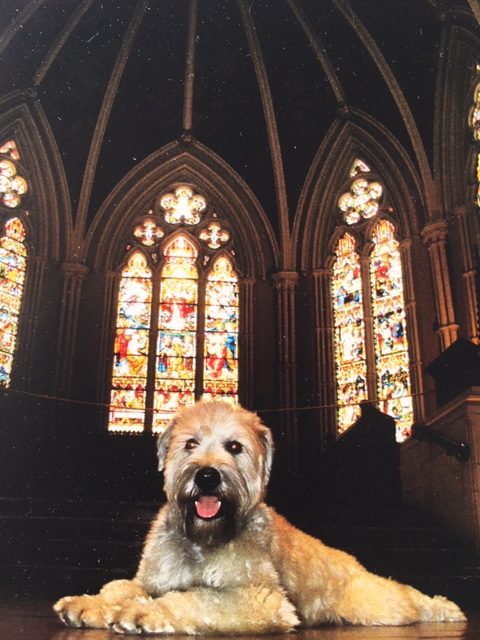August 23, 2019

A Reflection on Grief
Grief, that hard grip of sorrow, comes to us relentlessly and invades our sensibilities demanding undivided attention, an obelisk that turns us to stone. It stalks us; it envelopes us; it imprisons us in a stasis where we can look nowhere but into the dark shadows of that vacant space that has been left by the one we love. It’s hard and fast, an ugly master.
Yet, grief has two faces. It is a teacher, a guide, a priest. It is a reminder of joy, of affection, of a legacy of what was so good that its loss must punish us. Where there is no grief, there is no loss. If no loss, no past joy. If no past joy, then nothing. Such nothing is the condition of Hamlet: how weary, flat, stale and unprofitable, seem to me all the uses of this world. If we are grieving, we are not caught in Hamlet’s void.
Grief is a directional, a vector, a commander that tells us what may possible, for grief’s step-sister is memory. That memory must be seized upon as a faint promise to turn us away from those dark shadows, although its agonies are severe. In those agonies, we may demand survival. To survive, we must take the goodness of those memories and urge ourselves to rediscovery and recapture that life and love can be restored. The Scylla and Charybdis of the guilt of letting go and the need to drown in the past hold us fixed as we are tossed ‘each way and none’ wrapped in grief.
It is the gift of the lost one that such life force is restored.
Grief is not defined by its circumstances; it is not limited to the loss of family members and dear friends. Grief is the pain that comes from absence, sudden or gradual.
In my own experience, that process, however daunting, cannot be denied; grief must go somewhere, and the one grieving must navigate its course, for it may choose its own path if it is not guided. The afflicted must take control for his or her own health. For some, it must be resolved, even nurtured, as an exploration of profound feelings in solitude; for others, it must be shared and experienced with others who share the same loss. Rather as an individual lesson in deep feelings, it must not be denied, but must be taken as a journey through dark places to light. The one who has lost will be a victim of unintended consequences with denial. Its intensity will vary, for there is no mathematical formula by which to measure and weigh and dissolve. This is not chemistry class.
On a personal note, when my parents died, I did not grieve openly even to myself. It was the vanity of “I can handle this” by not handling it. My feelings, masked and repressed, devolved into anger of whose source I was not cognizant. That anger affected my work, and as a result, I retired four years earlier than I should have. I now have regrets. There is no going back.
Be not afraid of grief, but give it permission.